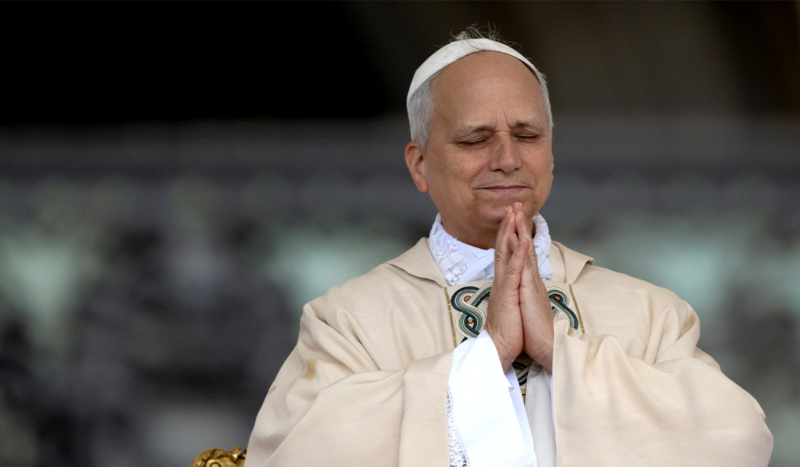
Catholic Church England and Wales / Flickr
In his July 20 Angelus address from Castel Gandolfo, Pope Leo XIV delivered one of his strongest condemnations yet of the war in Gaza, denouncing the violence as “barbarism” and mourning the victims of Israel’s July 17 attack on the Holy Family Catholic Parish.
The Pope expressed “profound sadness” and led prayers for the three Catholics killed in the strike.
“I pray for the victims, Saad Issa Kostandi Salameh, Foumia Issa Latif Ayyad, Najwa Ibrahim Latif Abu Daoud, and I am particularly close to their families and to all the parishioners,” he said. “Sadly, this act adds to the continuous military attacks against the civilian population and places of worship in Gaza.”
>>Names and faces of the Catholic dead and wounded from the Gaza parish struck by Israel<<
The Holy Father reiterated his plea for a peaceful resolution, urging world leaders to uphold international law and protect civilians.
“I renew my appeal to the international community to observe humanitarian law and to respect the obligation to protect civilians,” he continued, “as well as the prohibition of collective punishment, the indiscriminate use of force and the forced displacement of the population.”
Addressing Middle East Christians, he said: “I deeply sympathise with your feeling that you can do little in the face of this grave situation. You are in the heart of the Pope and of the whole Church.”
He concluded the segment by asking for Mary’s intercession.
“May the Virgin Mary, woman of the Levant, dawn of the new Sun that has risen in history,” he prayed, “protect you always and accompany the world towards the dawn of peace.”
The remarks came near the end of the Pope’s Sunday reflection, which began with a meditation on Christian hospitality — both in giving and receiving — as a safeguard for genuine encounter with God.
“On this summer Sunday,” Pope Leo said, “let us reflect on this interplay of giving and receiving hospitality, for without it our lives are impoverished.”
Drawing on the Gospel story of Martha and Mary, he emphasized that true hospitality requires both serving and being present.
He noted that in Italian, the word for “guest” is the same as “host,” underlining the reciprocal nature of hospitality.
“[Martha] is so caught up in preparing to welcome Jesus that she nearly spoils a unique moment of encounter,” he said. “Martha is a generous person, but our Lord calls her to something more than generosity alone. He calls her to leave her preparations behind and to come and spend time with him.”
The Pope cautioned against the temptation to reduce hospitality to mere preparation or productivity.
“Sometimes we too fail to choose the better part,” he said, echoing Jesus’ words to Martha. “We need to take time to rest and try to learn better the art of hospitality.”
He also critiqued the “holiday industry,” saying it often sells distraction rather than rest.
“The holiday industry wants to sell us all sorts of ‘experiences,’” he warned, “but perhaps not the ones we are really looking for. Every genuine encounter is free; it cannot be bought, whether it is an encounter with God, with others or with nature.”
The Pope encouraged the faithful to be more like Mary, who was “completely caught up in Jesus’ words.”
“We need only learn the art of hospitality,” he continued, “which includes both welcoming others and allowing ourselves to be welcomed.”

